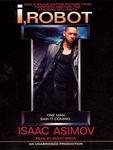
 Bimbos of the Death Sun
Bimbos of the Death Sun
By Sharyn McCrumb; read by Ruth Ann Phimister
4 Cassettes – 6 Hours /[UNABRIDGED]
Publisher: Recorded Books
Published: 1999
ISBN: 0788768867
Themes: / Science Fiction Convention / Mystery / Humor / Fandom /
“A quaint airport hotel hosts an SF convention that is positively swarming with sword and sorcery aficionados, unfortunately the guest of honor is found with a bullet through his cold little heart. Its obvious who did it, its author, Sharyn McCrumb”*
-Commander Rick, Prisoners Of Gravity
Appin Dungannon, the guest of honor at RubiCon, a regional science fiction convention has been murdered. He had written a seemingly endless, and highly profitable, series of swords-and-sorcery novels about a Celtic warrior with a magic sword. He had spent every moment at this particular con, and many previous, making a general nuisance of himself and ridiculing his own fans and the costume contest entrants. So its no real wonder that he wound up dead. The only question is ‘who did it?’ With so many suspects how can the murder be solved? After all the police don’t know the terrain, they don’t understand Klingon! Thankfully, Jay Omega, an engineering professor at a local university and author of the lamentably titled “Bimbos of The Death Sun” is up to the task of separating the murderers from the mere nerds.
First published in 1988, the computer technology references, like everyone still using floppy diskettes (!), is the only thing that really dates this funny novel.
Billed as a murder mystery satire, Bimbos of the Death Sun does have those elements. But considering the murder takes place more than half way through the book and the requisite whodunit scenes aren’t the primary focus even after the late murder, I see it more as straight satire of the convention culture that fans of fantasy and science fiction have built for themselves. For those interested, in such a straight mystery with a comedic touch I highly recommend you check out Isaac Asimov’s much underrated Murder At The ABA. Bimbos though, does have a few of the murder mystery necessities – like the very Rex Stoutish ‘I suppose your wondering why I’ve gathered you all here’ scene, but even then it does take place over a game of Dungeons and Dragons. McCrumb, an Edgar award winner, apparently got a strong negative reaction to the novel from what she calls “the sort of person who has a degree in physics and works at McDonalds, but its okay because on weekends he’s a Viking warrior.”* I can kind of see why though, she’s pretty ruthless – exposing the extreme geekitude of many SF conventioneers, but given that she appears to be carrying an outsider’s perspective (McCrumb is mainly known as a mystery author) its surprising just how accurately she’s portrayed the atmosphere of a con. I think she’s a little too familiar with the convention mindset to be entirely in contempt of it. And remember that in 1988 being a nerd wasn’t quite the same thing as being a nerd now. One other minor worry is that for such a short novel, a mere 6 hours (224 pages), the many character perspectives would seem to hamper the mystery elements, and I suppose it would if I were to critique it as a murder mystery alone it would be a concern. A mystery fan alone may have felt cheated, as a fan of both mysteries, science fiction, and its satirization, I didn’t.
Bimbos comes on four cassettes and packaged in the “Collector’s Edition,” an affordably priced, lightweight packaging that’s durable enough for a private collection but not durable enough for a library. A clear plastic sheet protects the printed insert containing the original cover art, which depicts the in-novel described cover art of Jay Omega’s own novel. Such touches are much appreciated by collectors like myself and Recorded Books has always been the standard bearer for outstanding original cover art on audiobooks.
Bimbos is full of jokes and comedic commentaries of fannish behavior, there’s plenty of fun for narrator Ruth Ann Phimister to play with. Her performance, including a funny Scottish accent, was always most appropriate and always in tone with the mood of the text, a lighthearted performance of a lighthearted visit to a fictional SF convention. I truly look forward to her reading of the sequel, entitled Zombies Of The Gene Pool, which is also available from Recorded Books.
* Quotations taken from Prisoners Of Gravity episode on “S.F. Mysteries”.
Posted by Jesse Willis




